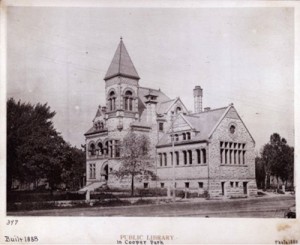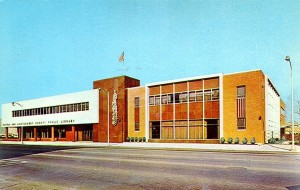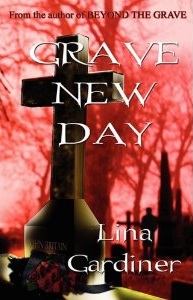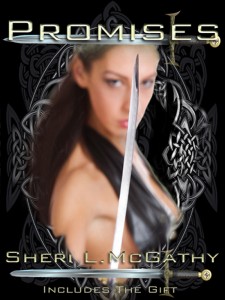I’m talking about word count, or length of a story. If you’re an author trying to sell to a traditional publisher, then yes, it matters quite a bit. Traditional publishers have guidelines, and most include a word-count range. Too short, and you’re not giving readers enough story for their money. Too long, and your book’s going to cost the publisher more to print and ship, and fewer will fit on the rack at the grocery store (or space allotted on a bookstore’s shelf).
 With ebooks, printing, shipping and shelf space are no longer applicable. A longer book may take up a few more bytes of disk space, and a couple more seconds for the reader to download, but disk space is continually becoming cheaper, to the point that it’s negligible. With increasing bandwidth and cell phone network capacity and speeds, download speeds don’t matter so much either. Where most publishers of genre fiction hesitate to take on books much longer than 100,000 words (epic fantasy and historical fiction being the main exceptions), publishers and sellers of ebooks aren’t operating under the same constraints. Likewise, few readers will plunk down enough cash for it to be worthwhile for a publisher to print a single novella or short story, but with production and shipping not part of the equation, ebooks are a viable medium for short fiction. So does word count matter?
With ebooks, printing, shipping and shelf space are no longer applicable. A longer book may take up a few more bytes of disk space, and a couple more seconds for the reader to download, but disk space is continually becoming cheaper, to the point that it’s negligible. With increasing bandwidth and cell phone network capacity and speeds, download speeds don’t matter so much either. Where most publishers of genre fiction hesitate to take on books much longer than 100,000 words (epic fantasy and historical fiction being the main exceptions), publishers and sellers of ebooks aren’t operating under the same constraints. Likewise, few readers will plunk down enough cash for it to be worthwhile for a publisher to print a single novella or short story, but with production and shipping not part of the equation, ebooks are a viable medium for short fiction. So does word count matter?
I say it does, but for different reasons. When a reader buys a book from a physical bookstore, s/he can pick it up, flip through the pages, and judge by the thickness of the book, the size of the print, and the amount of white space on the pages how long this book will take to read – or more importantly, how good an entertainment (or informational) value the book is for the asking price.
The reader has no way of telling this for ebooks, unless the online retailer or publisher includes it in the book’s product description. Often, a reader shops with a goal in mind – not necessarily of a specific book, but for something to read while waiting at the kids’ sports practice, or while walking on the treadmill, on vacation, etc. – and might want a story to fit the amount of time available to read. If the reader was expecting a novella she could read in an hour, only to find when the hour’s up that she’s only halfway through it, that could be a bit jarring. Or worse, when the reader’s looking to be entertained during a long flight, only to have the story run out halfway through it, with nothing new to read and no wifi/cell connection with which to download something else.
The main situation where this is a problem is when the reader feels s/he hasn’t gotten a good value for his/her money – for example, many readers consider $2.99 a fair price for a novella, but would feel ripped off if they expected a full novel or novella, only to get a short story a fraction. In fact, I’ve read of many an ebook author getting dinged with 1-star reviews for this very reason – the reader expected a full novel, but got a novella. Sadly, in some cases, this was clearly spelled out in the book’s description, and either the reader failed to notice, or didn’t even read the description. In other cases, it wasn’t noted – and IMO the reader is justified for feeling cheated.
So what do you think – does size matter with ebooks? Or does it only matter in relation to price and value? I normally prefer longer books, but lately I’ve been enjoying some darned good novellas while on the treadmill. What about you?
 One unwanted gift. One great wrong. One chance to make things right…
One unwanted gift. One great wrong. One chance to make things right… | Barnes and Noble | Smashwords | All Romance eBooks
 On another note, Sheri McGathy’s short story “Promises” is now available in the Kindle Store as well! Many thanks to Sheri for letting me use her story as a guinea pig to learn Kindle formatting. If you enjoy epic fantasy and are looking for a quick read, give it a try! “Promises” is also available at Barnes & Noble and Smashwords, as well as iBookstore, Kobo, and other digital retailers.
On another note, Sheri McGathy’s short story “Promises” is now available in the Kindle Store as well! Many thanks to Sheri for letting me use her story as a guinea pig to learn Kindle formatting. If you enjoy epic fantasy and are looking for a quick read, give it a try! “Promises” is also available at Barnes & Noble and Smashwords, as well as iBookstore, Kobo, and other digital retailers.


 The precursor to
The precursor to  The library is once more outgrowing its downtown location, and
The library is once more outgrowing its downtown location, and  With ebooks, printing, shipping and shelf space are no longer applicable. A longer book may take up a few more bytes of disk space, and a couple more seconds for the reader to download, but disk space is continually becoming cheaper, to the point that it’s negligible. With increasing bandwidth and cell phone network capacity and speeds, download speeds don’t matter so much either. Where most publishers of genre fiction hesitate to take on books much longer than 100,000 words (epic fantasy and historical fiction being the main exceptions), publishers and sellers of ebooks aren’t operating under the same constraints. Likewise, few readers will plunk down enough cash for it to be worthwhile for a publisher to print a single novella or short story, but with production and shipping not part of the equation, ebooks are a viable medium for short fiction. So does word count matter?
With ebooks, printing, shipping and shelf space are no longer applicable. A longer book may take up a few more bytes of disk space, and a couple more seconds for the reader to download, but disk space is continually becoming cheaper, to the point that it’s negligible. With increasing bandwidth and cell phone network capacity and speeds, download speeds don’t matter so much either. Where most publishers of genre fiction hesitate to take on books much longer than 100,000 words (epic fantasy and historical fiction being the main exceptions), publishers and sellers of ebooks aren’t operating under the same constraints. Likewise, few readers will plunk down enough cash for it to be worthwhile for a publisher to print a single novella or short story, but with production and shipping not part of the equation, ebooks are a viable medium for short fiction. So does word count matter? Considering that I write time travel romances, I also like to read them. Same goes for other types of paranormal romance – shifters, fae, vampires, witches, other worlds, psychic powers, etc. My favorites almost always involve a main character who is initially unaware of his/her paranormal abilities or nature, or who comes into these abilities in the beginning of the book and must learn how to use this special nature or power. But one problem I have with many of these books is that these characters believe too easily. They learn something about themselves that no reasonable person would easily accept, then boom! Hey, I’m a vampire, that’s great (or sucks), and off the story goes, no problem.
Considering that I write time travel romances, I also like to read them. Same goes for other types of paranormal romance – shifters, fae, vampires, witches, other worlds, psychic powers, etc. My favorites almost always involve a main character who is initially unaware of his/her paranormal abilities or nature, or who comes into these abilities in the beginning of the book and must learn how to use this special nature or power. But one problem I have with many of these books is that these characters believe too easily. They learn something about themselves that no reasonable person would easily accept, then boom! Hey, I’m a vampire, that’s great (or sucks), and off the story goes, no problem. One book I recently read where this was handled well was
One book I recently read where this was handled well was 